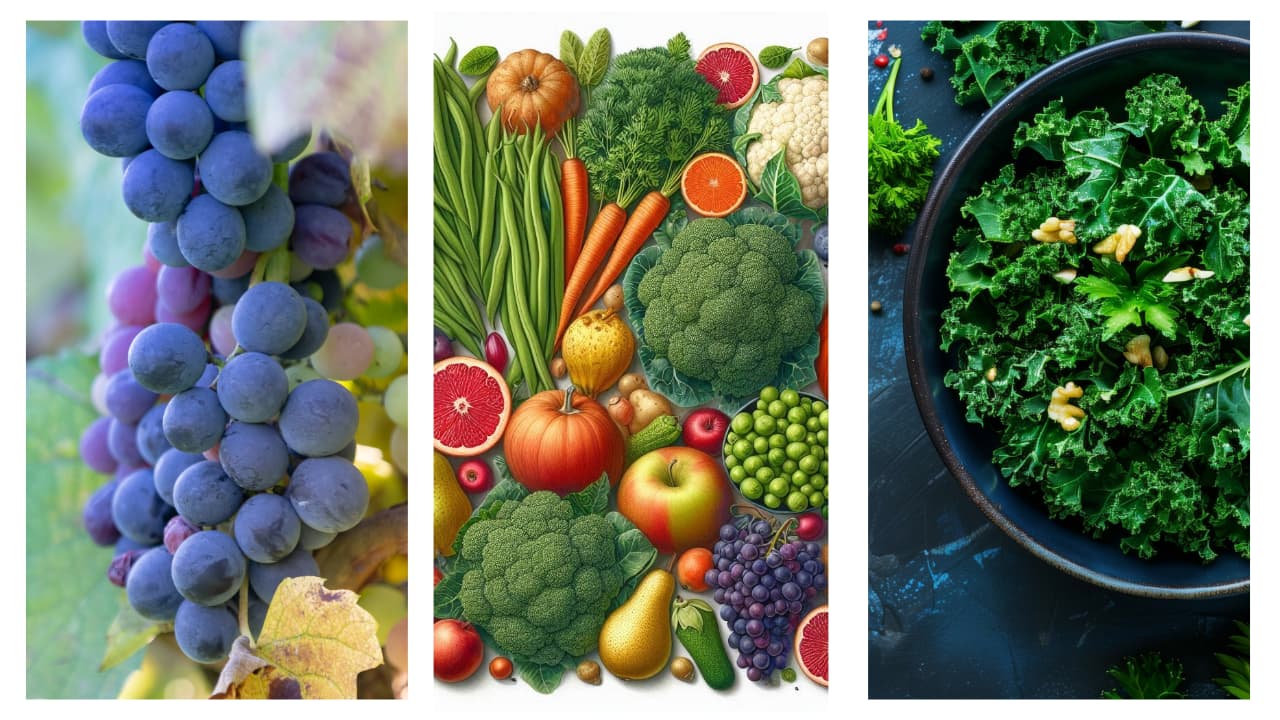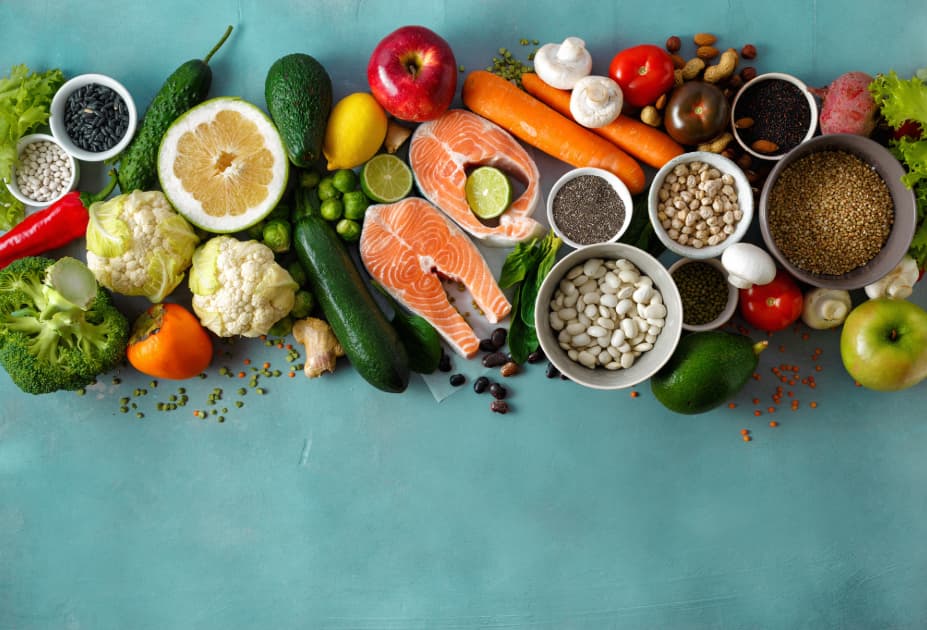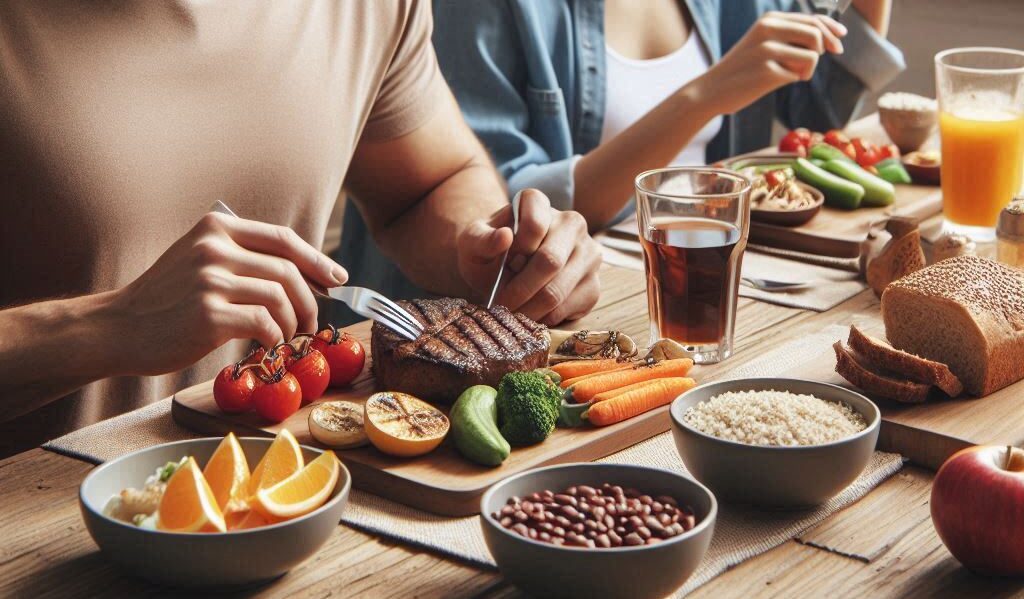Disclosure: All products recommended in Living Up Blog have been selected by the founder and contributing authors. Some posts include affiliate links, and when you buy something through one of the links, I may earn an affiliate commission at no extra cost to you. As an Amazon Associate, I earn from qualifying purchases. View the full disclaimer for more information. September 30, 2024 ByAna Rivas Understanding Nutrition for a Balanced Diet Discover the key elements of a balanced diet in this comprehensive guide to understanding nutrition. Learn about essential nutrients and healthy eating. When it comes to maintaining a healthy lifestyle, one term you often hear is “balanced diet.” But what exactly does that mean? To maintain a healthy lifestyle you already know it’s a combination of several factors, you need exercise, a balanced diet, and contact with the world. We want to focus on the balanced diet here, but what exactly does it mean to have a balanced diet? Well, it refers to eating a wide variety of foods in the right proportions to ensure your body gets all the nutrients it needs to function optimally. Not just low-calorie, sugarless, saltless, or overcooked foods, let’s explore the nutritional value of food. Building meals around the core food groups – proteins, fruits, vegetables, grains, fats/oils, and dairy – helps create a balanced diet. Proteins are vital for building and repairing tissues in our bodies, while fruits and vegetables are rich sources of vitamins, minerals, and antioxidants that support overall health. Let’s talk about a balanced diet It’s like giving your body a well-rounded meal ticket for good health and vitality. By consuming a variety of foods, each food group plays a unique role in supporting various bodily functions – from proteins for muscle repair and growth to carbohydrates for energy production. Grains provide energy through carbohydrates while also offering fiber for digestive health. Fats/oils are important for absorbing fat-soluble vitamins and providing essential fatty acids needed by our bodies. In essence, a balanced diet is about harmony on your plate – ensuring you have a bit of everything your body craves. It’s not about strict rules or deprivation but rather embracing the colorful bounty nature offers us through various foods. So next time you sit down to eat, think about how you can create balance by incorporating foods from each group into your meals. Your body will thank you with increased energy levels, better digestion, improved mood, and overall vitality. The importance of a balanced diet It’s like the secret sauce to a healthy and vibrant life. It’s not just about counting calories or hopping on the latest fad diet bandwagon – it’s about giving your body all the essential nutrients it needs to thrive. So, why exactly is a balanced diet so important? Well, it ensures that your body gets all the necessary fuel it needs to function properly. Just like a car needs gas to run smoothly, your body needs a variety of nutrients from different food groups to keep everything ticking along nicely. Without this mix of nutrients, you might find yourself feeling sluggish, irritable, or even prone to illness. But it’s not just about keeping your energy levels up. Certain nutrients help support vital bodily functions such as immune system strength, bone health, and brain function, essentially giving your body the tools it needs to keep everything in check. Moreover, a balanced diet can have long-term benefits for your health. By consistently nourishing your body with all the essential nutrients it craves, you’re helping reduce the risk of chronic diseases such as heart disease, diabetes, and certain types of cancer. Think of eating well as an investment in your future self – one that pays off in terms of longevity and quality of life, including how it can impact our mental health. Studies have shown that certain nutrients play a role in regulating mood and cognitive function. So by feeding yourself with wholesome foods that support brain health – think omega-3 fatty acids from fish or antioxidants from colorful fruits and veggies – you’re not just fueling your body but also nourishing your mind. What To Eat For A Balanced Diet The short answer is variety. A wide range of foods in your daily meals ensures that you are getting all the nutrients your body needs to function at its best. Include foods from all food groups in every meal – fruits, vegetables, grains, proteins, dairy, and healthy fats. Different colored fruits and vegetables provide different vitamins and minerals essential for good health. For example, orange fruits like oranges and sweet potatoes are rich in vitamin C and beta-carotene, while dark leafy greens like spinach and kale are packed with iron and calcium. When it comes to grains, opt for whole grains whenever possible. Whole grains like brown rice, quinoa, oats, and whole wheat contain more fiber and nutrients than refined grains like white rice or white bread. Blend varieties such as ROM AMERICA 12 Premium Healthy Mixed Grains can be such an easy addition to any diet without sacrificing a lot of time and effort preparing. These complex carbohydrates provide sustained energy throughout the day and help keep you feeling full longer. Proteins are crucial for building muscle, repairing tissue, and supporting overall body function. Include a variety of protein sources in your diet such as lean meats like chicken or turkey, fish rich in omega-3 fatty acids like salmon or sardines, plant-based proteins like beans or lentils, as well as dairy products such as Greek yogurt or cottage cheese. Dairy products are an excellent source of calcium. Choose low-fat or non-fat dairy options to limit saturated fat intake while still reaping the benefits of calcium. Incorporate dairy into your diet or fortified plant-based alternatives like almond milk or soy yogurt for those who are lactose intolerant or following non-animal alternatives. The Six Core Food Elements and Ratios for a balanced diet To help understand nutrition consider the six core food elements: proteins, fruits,







